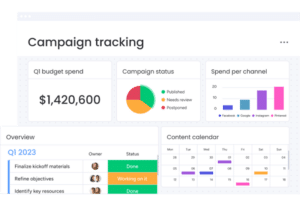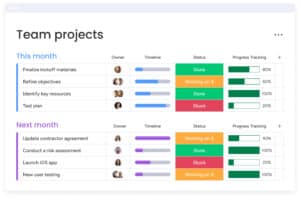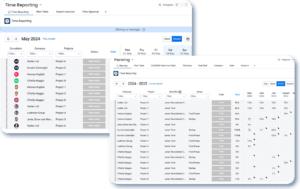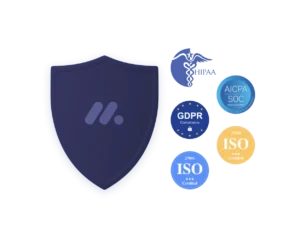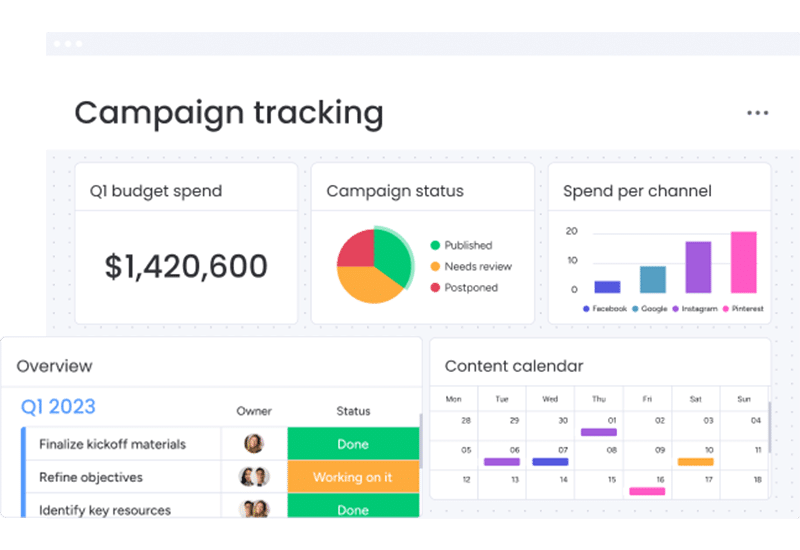Introduction
In the digital age, where data is often considered the most valuable asset of a business, how companies manage, store, and host their Customer Relationship Management (CRM) data can significantly impact their success. CRM data storing and hosting are not just about keeping customer information safe. They’re about unlocking the potential of every customer interaction to drive growth, enhance customer satisfaction, and streamline operations. With the ever-evolving landscape of digital threats, compliance requirements, and technological advancements, understanding the nuances of CRM data storing and hosting becomes paramount for businesses aiming to maintain a competitive edge.
This blog post aims to discuss the complexities surrounding CRM data storing and hosting. Whether you’re a small business owner looking to optimize your CRM strategy or an IT professional seeking to bolster your organization’s data security and performance, navigating the realm of CRM data storing and hosting is a journey worth taking. As we delve into the key considerations, the impact on CRM performance, and the best practices for CRM data management and security, keep in mind that the choices you make today can define your business’s trajectory tomorrow. Join us as we explore the multifaceted world of CRM data storing and hosting, ensuring that your CRM data works as hard for your business as you do.
Understanding CRM Data Storing and Hosting
Before we explore the intricacies of CRM data storing and hosting, it’s essential to grasp what we mean by CRM data and why its hosting plays such a critical role in the modern business ecosystem. This foundational knowledge will not only clarify the stakes involved but also illuminate why particular considerations are paramount when it comes to storing and hosting this valuable data.
Defining CRM Data
CRM data encompasses a wide range of information that businesses collect about their interactions with customers and potential customers. This includes but is not limited to, personal information such as names, addresses, and contact details; interaction logs that track every engagement with your brand, whether it’s through customer service calls, emails, or social media interactions; sales history, highlighting past purchases and service subscriptions; and behavioural data, offering insights into how customers use your products or services. This data is the lifeblood of any CRM system. It empowers businesses to create personalized marketing campaigns, improve customer service, and ultimately drive sales. However, the true potential of CRM data can only be unlocked when it’s properly stored, managed, and hosted.
The Importance of Secure Hosting
The hosting environment of your CRM data plays a crucial role in ensuring the security, accessibility, and efficiency of your CRM system. Secure hosting is not just about protecting data from unauthorized access or cyber-attacks. It’s also about ensuring that your data is always available when you need it and that it’s stored in compliance with relevant data protection regulations such as GDPR or CCPA. A secure and reliable hosting solution provides the foundation for a CRM system that supports real-time data access, seamless user experiences, and robust data protection measures. This, in turn, builds trust with your customers and maintains your business’s reputation as a secure and reliable entity.
The landscape of CRM data storing and hosting is vast and varied. Its options range from on-premise servers to cloud-based solutions. Each comes with its own set of advantages and considerations. They impact everything from how you manage data security to how quickly you can scale your CRM capabilities in line with business growth. As we delve deeper into the key considerations for CRM data storing and hosting, remember that the choice you make must align not only with your current business needs but also with your long-term growth aspirations and strategic goals.
Omnitas Newsletter
Sign up for our monthly newsletter to stay up-to-date on our latest blog articles, videos and events!
Thank you!
You have successfully joined our subscriber list.
Key Considerations for CRM Data Storing and Hosting
Choosing the right approach for CRM data storing and hosting is a decision that comes with significant implications for your business. From security measures to compliance with legal requirements and the need for scalability, several critical factors must be weighed. Understanding these considerations can help you select a solution that supports your business’s unique needs and goals.
Security Measures
In an era where cyber threats are ever-evolving, the security of CRM data cannot be overstated. Opting for CRM data storing and hosting solutions that prioritize security is crucial. Essential security measures include data encryption, both at rest and in transit, to protect sensitive information from unauthorized access. Additionally, robust access control mechanisms ensure that only authorized personnel can access specific data sets, further safeguarding customer information. Regular security audits and the implementation of a comprehensive data backup strategy are also vital. It ensures data integrity and availability in the event of a cyber incident or physical disaster.
Compliance and Legal Requirements
Adhering to legal and regulatory requirements is a non-negotiable aspect of CRM data storing and hosting. With laws such as the General Data Protection Regulation (GDPR) in Europe and the California Consumer Privacy Act (CCPA) in the United States, businesses must ensure their data handling practices are compliant. This involves understanding the specific requirements of each regulation, such as data subject rights, and implementing measures to support compliance. Additionally, it’s important to choose hosting solutions that are aligned with these legal frameworks, potentially necessitating data to be stored in specific geographic locations.
Scalability and Flexibility
As businesses grow, their CRM needs will evolve. The chosen solution for CRM data storing and hosting must, therefore, offer scalability and flexibility. This means being able to easily increase storage capacity or processing power without significant downtime or disruption. Cloud-based hosting solutions are often well-suited to meet these needs. They offer on-demand scalability and the flexibility to adapt to changing business requirements. However, it’s also important to consider potential scalability limits and cost implications to ensure they align with your long-term business strategy.
Integration Capabilities
In today’s interconnected digital ecosystem, CRM systems do not operate in isolation. They need to integrate seamlessly with other business systems such as ERP, marketing automation platforms, and customer service tools. The chosen CRM data storing and hosting solution should, therefore, support easy integration with these systems. This not only enhances operational efficiency by enabling data to flow freely between systems but also provides a unified view of the customer. This further enriches insights and supports more informed decision-making.
The Impact of Hosting on CRM Performance
The performance of your CRM system is linked to the decisions you make about data storing and hosting. These choices affect not only the security and compliance of your CRM data but also how effectively your team can access and use the system to drive business outcomes. Below, we explore the critical areas of CRM performance that are influenced by your hosting decisions.
Speed and Accessibility
One of the most immediate impacts of your CRM data storing and hosting choice is on the speed and accessibility of your CRM system. High-performance hosting can ensure that your CRM system responds quickly. As a result, this allows your team to access customer data and insights without frustrating delays. This is particularly important in customer-facing roles. This is because here timely access to information can enhance the customer experience and increase sales opportunities. Cloud-based solutions often provide the advantage of reliable, fast access from anywhere in the world, assuming a stable internet connection. This accessibility is vital for businesses with remote teams or those that require mobility and flexibility.
Downtime and Reliability
The reliability of your CRM system is another critical consideration that’s directly impacted by your hosting decisions. Downtime can have a significant negative effect on your business, from lost sales opportunities and reduced productivity to a tarnished brand reputation. Selecting a hosting provider with a proven track record of minimal downtime and robust disaster recovery plans is essential. Look for providers that offer uptime guarantees and transparently report their performance. Additionally, the provider should have measures in place to quickly address any issues. This ensures your CRM system remains operational and reliable at all times.
Data Management and Quality
The hosting environment can also influence the management and quality of your CRM data. High-quality hosting solutions facilitate efficient data processing and analysis, enabling businesses to obtain actionable insights more readily. They support advanced data management practices, such as real-time data synchronization and automated data cleaning. These are crucial for maintaining the accuracy and relevance of CRM data. Efficient data management ensures that your team has access to up-to-date, reliable information. As a result, this enables them to make informed decisions and provide personalized customer experiences.
Choosing the Right CRM Data Storing and Hosting Provider
Selecting the most suitable CRM data storing and hosting provider is a decision that can significantly influence your business’s operational efficiency, customer satisfaction, and overall success. It involves careful consideration of various factors, from technical capabilities to customer support and compliance features.
Must-have Features in a Provider
When evaluating potential CRM data storing and hosting providers, there are several must-have features to look for. These include:
- High Availability and Uptime Guarantees: Providers should offer robust uptime guarantees, typically in the range of 99.9% or higher, to ensure your CRM system is always accessible.
- Advanced Security Measures: Look for providers that offer comprehensive security features, including data encryption, firewall protection, intrusion detection systems, and regular security audits.
- Scalability Options: Your chosen provider should offer flexible scalability options, allowing you to easily upgrade your resources as your business grows.
- Compliance and Data Sovereignty: Ensure the provider adheres to relevant data protection regulations (such as GDPR or CCPA) and offers data hosting in locations that comply with your business’s legal requirements.
- Quality Customer Support: Access to responsive, knowledgeable customer support is crucial for resolving any issues swiftly and minimizing potential downtime.
- Integration Capabilities: The provider should support seamless integration with other software and systems crucial to your business operations.
Evaluating Cost vs. Value
While cost is an important consideration when selecting a CRM data storing and hosting provider, it’s essential to evaluate the overall value the provider brings to your business. The cheapest option is not always the best choice, especially if it compromises on reliability, security, or scalability. Consider the provider’s reputation, the quality of their infrastructure, their customer service record, and the additional services they offer. A provider that may cost a bit more but offers superior performance, better security features, and excellent customer support can offer greater value in the long run.

The Role of Cloud Solutions in CRM Data Storing and Hosting
The advent of cloud computing has significantly altered the landscape of CRM data storing and hosting. It provides businesses with more agile, scalable, and cost-effective options compared to traditional on-premises solutions. Cloud-based CRM platforms offer a host of advantages that can help businesses of all sizes optimize their customer relationship management. Let’s explore the benefits of cloud hosting and the considerations involved in choosing between private and public cloud options.
Benefits of Cloud Hosting
Flexibility and Scalability: One of the most compelling reasons for choosing cloud solutions for CRM data storing and hosting is their inherent flexibility and scalability. Cloud platforms can easily adjust to your business’s growing data needs. They allow for seamless scaling up or down without significant upfront investments in physical infrastructure. This flexibility is crucial for businesses in fast-paced environments or those experiencing rapid growth.
Cost-Effectiveness: Cloud solutions often operate on a pay-as-you-go model, which can be more cost-effective than maintaining and upgrading on-premise servers. This model allows businesses to pay only for the storage and computing resources they actually use. As a result, this reduces wasted capacity and associated costs.
Enhanced Collaboration and Accessibility: Cloud-hosted CRM systems enable enhanced collaboration by allowing teams to access the same information from anywhere, at any time, provided they have internet access. This accessibility is invaluable for remote or distributed teams, ensuring that all members have up-to-date customer information at their fingertips.
Reliability and Disaster Recovery: With data stored in the cloud, businesses benefit from high reliability and robust disaster recovery options. Cloud providers typically offer data redundancy, storing copies of data in multiple locations to prevent loss in case of hardware failure, natural disaster, or other disruptions.
Private vs. Public Cloud Considerations
When opting for cloud solutions, businesses face the decision between private and public cloud hosting. Each with its own set of benefits and considerations.
Private Cloud: A private cloud offers a dedicated infrastructure for your business, providing enhanced control and security. It’s particularly suitable for businesses with strict data security and compliance requirements. However, private clouds typically involve higher costs and require more management than public options.
Public Cloud: Public cloud services provide CRM hosting on shared infrastructure. They offer scalability and cost-efficiency without the need for significant hardware investment. While public clouds offer robust security measures, businesses share resources with other organizations, which may raise concerns for those with highly sensitive data.
Choosing between private and public cloud solutions for CRM data storing and hosting depends on your business’s specific needs, budget, and compliance requirements. Each option offers distinct advantages, and the right choice should align with your strategic goals. This ensures that your CRM system supports your business effectively and efficiently.
Best Practices for CRM Data Management and Security
In the complex digital landscape, safeguarding CRM data while ensuring it remains actionable and insightful requires a multifaceted approach. By adhering to these best practices, businesses can create a robust framework for CRM data management and security.
Regular Data Audits
Continuous Monitoring for Integrity: Regular data audits are crucial for maintaining the accuracy, completeness, and integrity of CRM data. These audits help identify any discrepancies, outdated information, or inconsistencies in your CRM database, allowing for timely corrections and updates. Implementing a schedule for routine audits ensures that your CRM data remains reliable and useful for decision-making.
Compliance Verification: Audits also play a vital role in ensuring ongoing compliance with data protection regulations. By periodically reviewing data handling and storage practices, businesses can verify that they adhere to legal requirements. As a result, this reduces the risk of costly penalties and reputational damage.
User Training and Access Management
Empowering Users with Knowledge: Comprehensive training programs for employees who access the CRM system are essential. Such training should cover not only how to use the system effectively but also best practices for data entry, update protocols, and an understanding of the importance of data accuracy and security.
Role-based Access Controls (RBAC): Implementing role-based access control (RBAC) ensures that employees have access only to the CRM data and features necessary for their specific roles. This minimizes the risk of accidental or malicious data breaches by limiting the scope of data access based on job functions. It also enhances data security by ensuring that sensitive information is only accessible to authorized personnel.
Implementation of Strong Cybersecurity Measures
Encryption and Secure Connections: Encrypting data both at rest and in transit is a fundamental security measure. It protects sensitive information from interception and unauthorized access during data exchanges and when stored in databases.
Regular Software Updates and Patch Management: Keeping the CRM system and its underlying infrastructure up to date with the latest security patches is vital for protecting against known vulnerabilities. Regular updates ensure that the system remains defended against emerging security threats.
Advanced Threat Detection Tools: Employing advanced threat detection tools can provide early warnings about potential security breaches. These tools use artificial intelligence and machine learning algorithms to detect unusual patterns or activities that may indicate a cybersecurity threat. As a result, this allows for prompt response before significant damage occurs.
Conclusion
The journey through the intricacies of CRM data storing and hosting reveals a landscape filled with critical decisions that can significantly impact a business’s operational efficiency, customer relationships, and competitive edge. As we’ve explored, the considerations range from the foundational—such as security measures and compliance with legal requirements—to strategic choices about scalability, flexibility, and integration capabilities. Moreover, the advent of cloud solutions has introduced new dynamics in CRM data management. This offers pathways to enhanced collaboration, cost efficiency, and scalability.
Choosing the right CRM data storing and hosting solutions is not merely a technical decision but a strategic one. A decision that aligns with your business objectives and growth aspirations. It demands a thoughtful approach, weighing the benefits of different hosting environments, understanding the implications of public vs. private cloud options, and adopting best practices in data management and security. By doing so, businesses can ensure their CRM systems are not only secure and compliant but also agile and capable of supporting personalized, data-driven customer interactions.
The Importance of Investing in CRM Data Storing and Hosting
In today’s digital-first business environment, where data acts as the cornerstone of decision-making and customer engagement, investing the time and resources to get CRM data storing and hosting right is not an option—it’s a necessity. As you consider your CRM data strategy, remember that the choices you make today will shape your business’s ability to innovate, respond to market changes, and cultivate lasting customer relationships tomorrow.
Let this guide be your starting point towards optimizing your CRM data storing and hosting practices. Assess your current strategies, consider the insights shared, and take proactive steps to enhance your CRM infrastructure. The goal is clear: to harness the full potential of your CRM data, driving not just business growth but also creating meaningful, enduring connections with your customers.
If you found this blog post useful, make sure to sign up for our monthly newsletter below. Stay in the loop regarding all things business efficiency and automation!


